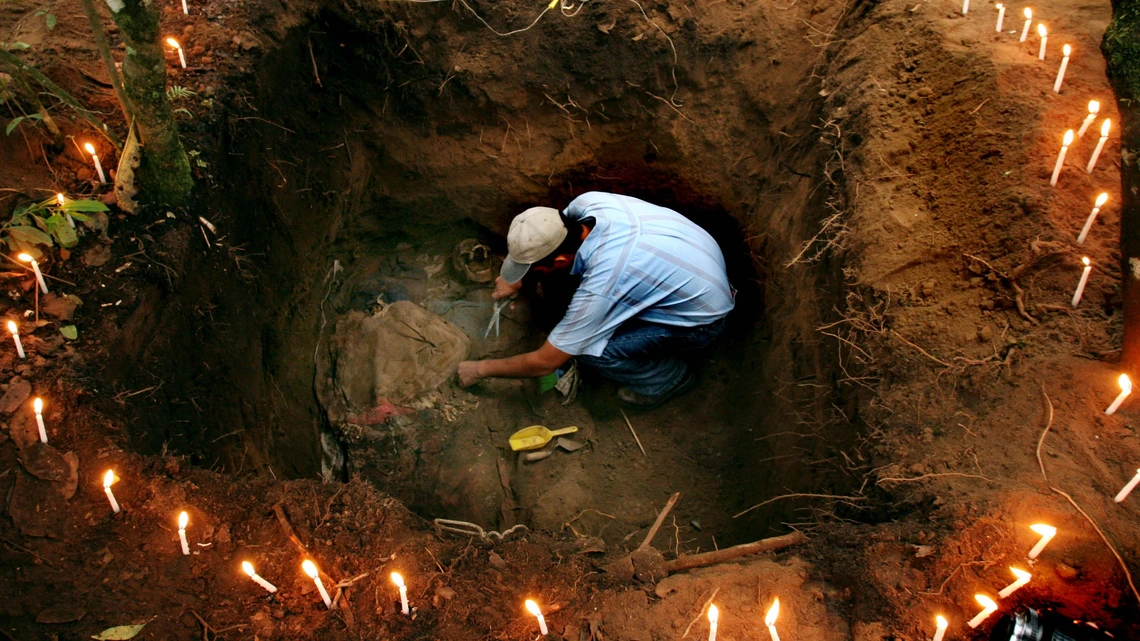
A forensic anthropologist works to exhume the body of a peasant killed by the Guatemalean army in 1982 during the civil war.
Rodrigo Abd
In this seven-week course community members will be introduced to one of the most interesting and cutting-edge issues in human rights practice. They will study, without pressure of graded assignments, alongside University of Arizona graduate students enrolled in the online Human Rights Practice program. This fully online course is taught by Dr. Robin Reineke, who has been on the forefront of using the tools of forensic anthropology to advance human rights.
Dr. Reineke will introduce course participants to the field of forensic anthropology and demonstrate how this field has been applied in human rights investigations. The science and technology of forensic anthropology is uniquely capable of corroborating victim testimony, revealing systematic violence, and providing pathways for healing for post-conflict societies. Dr. Reineke will lead the class through a fascinating history of the use of forensic anthropology in human rights investigations, and facilitate discussions of the complicated challenges by forensic scientists and survivor communities alike. Guest speakers will include high-profile forensic anthropologists with experience in such human rights contexts including Argentina, Guatemala, the former Yugoslavia, the U.S.-Mexico border, and others.
Participants will have access to readings, online documentaries, podcasts, and interactive web-content that they can explore at their own pace. They will have access to lectures by the instructor and presentations by guest experts from around the globe. They will be invited to participate in weekly discussion boards, where they will receive feedback from Dr. Amalia Mora, the course coordinator, and also join two synchronous video discussions with fellow classmates led by the course coordinator. Those two video discussions are scheduled for week one and tentatively week six. Finally, participants will be provided with opportunities to engage in human rights work related to forensic anthropology locally.
Synchronous meetings with the instructor and the course coordinator will be hosted through the Zoom video conferencing platform.
Readings and Syllabus
Dr. Amalia Mora will be the coordinator in this class and will facilitate the access of the course materials, lead discussion boards, and host two synchronous video conferences throughout the course, one in week one and the other in week five. Once participants are registered, they will be connected with Amalia and be sent instructions on how to access materials.
Weekly schedule:
- The instructor will post weekly videos early in the week; these videos will contain a "tour" of the week ahead and a conceptual intro to the content.
- A 60 to 90-minute talk and discussion by a guest forensic anthropologist towards the end of the week
- An opportunity to engage with the course coordinator on a weekly discussion board
Registration
Refunds are available and need to be requested before or by May 25. To drop a class, please contact Kerstin Miller at 520-621-5111 or sbs-communitymatters@email.arizona.edu. A $25 administrative fee for each cancellation will apply.

